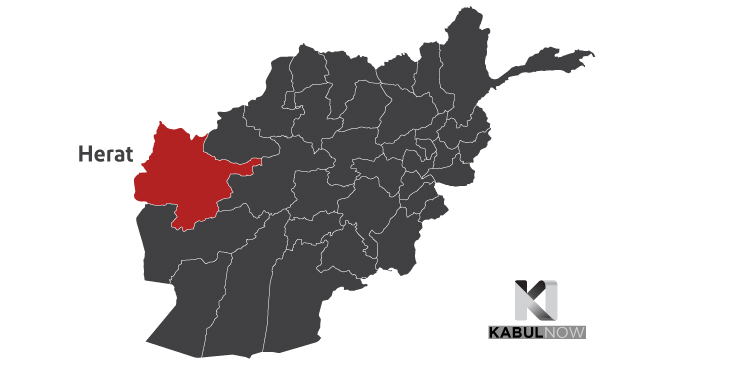At least five individuals, including two clerics, were killed and three others were injured in an attack by unidentified gunmen in Herat, on Friday, December 1. The attack happened in Jebrael, a predominantly Hazara-populated area in the western province.
Among the victims were two Hazara clerics, Mohammad Mohsen Hamidi and Mohammad Taqi Sadeqi, originally from Lal wa Sarjangal district in Ghor province, and three additional individuals whose names remain unknown.
No group has yet claimed responsibility for the attack, and the Taliban has so far remained silent on the matter.
Following the attack, hundreds of people in Herat took to the streets to protest the ongoing targeted killing of Hazaras in the city. Carrying the bodies of the victims, they demanded justice and swift action against the perpetrators.
Last week, another attack in the same area left two Hazara religious scholars dead, after unknown gunmen shot them. Richard Bennett, the UN Special Rapporteur for Human Rights in Afghanistan, called for a thorough and independent investigation, stressing the need for accountability and justice. “I’m looking into highly concerning reports of the killing of two Shia scholars in Herat yesterday which follows the killing of another cleric in the area in October. I urge a thorough independent investigation to bring the perpetrators to justice in line with international standards,” said Bennett.
Aref Rahmani, a Hazara former member of the Afghanistan parliament, said in a post on social media that the victims were returning from a memorial ceremony for Eid Mohammad Etemadi, another Hazara cleric who was killed by unknown gunmen in October.
Although armed violence has seen a decline since the Taliban’s recapture of Afghanistan, the persecution of Hazaras, a historically persecuted ethnic and religious minority, continues. Community activists, human rights groups, and scholars believe that the consistent targeted of the community could merit genocide.
Since 2016, community activists have launched the Stop Hazara Genocide campaign, calling on international bodies and world governments to recognize their persecution in Afghanistan as genocide and deploy measures to stop it. In the fall of 2022, the campaign brought tens of thousands of people to the streets in over 100 cities around the world, including inside Taliban-controlled Afghanistan.
Last year, Richard Bennett called for investigations into the attacks on Hazara and Sufi communities. He said that these attacks are “becoming increasingly systematic in nature and reflect elements of an organizational policy,” and that they may therefore constitute “crimes against humanity.”
Although targeted attacks against Hazaras have been happening for years, human rights observers argue that the Taliban’s takeover has taken from them any potential means of defending themselves or seeking justice. The Taliban, a Sunni extremist group, has invalidated the recognition of the Shia sect as an official religious sect, pushing Hazaras out of the legal sector and depriving them of a legal basis to seek justice. They have also removed Hazaras from the composition of the government, including from rule of law agencies, that according to community activists and observers have left them defenseless against mounting threats.
Human Rights Watch (HRW) reported last year that since the Taliban took over Afghanistan in August 2021, the Islamic State affiliate group, ISKP, has claimed responsibility for at least 13 attacks against Hazaras and has been linked to at least 3 more, killing and injuring at least 700 people.
During their first period in power in Afghanistan, the Taliban committed several massacres against Hazaras, including in Balkh, Bamyan, and Samangan which according to Human Rights Watch killed several thousand civilians.




